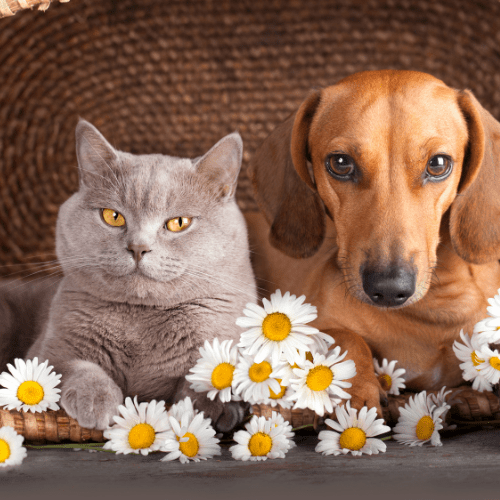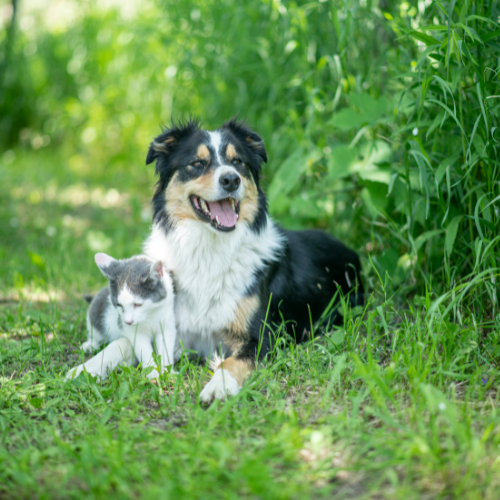Spring is right around the corner and it’s time to ready our gardens! It’s easy to forget that some of those prized plants and fertilizers can be toxic to your pet. Let’s review what to look out for to keep your furry friend safe!
Poisonous Plants for Dogs:

Poisonous Plants for Cats:
Our feline friends aren’t exempt either. Lilies are the plant to be most concerned about. Many spring varieties of lilies are highly toxic to cats, including, tiger, day, Easter, stargazer, red, and wood lilies.
Tiger lilies are typically the first to bloom. If you have a cat, it should be left where it blooms-never in the house. If your cat is an outdoor cat, keep a close eye out that
they aren’t getting into them. The pollen, leaves, stems, and even the water from the vase of
these lilies can cause severe kidney failure in cats. Equally toxic are Easter Lilies. We once almost lost one of our favorite cats, who reacted almost fatally within minutes of touching her nose to a bloom and was rushed to an emergency vet just in time. Even then, it was touch-and-go for days. If you believe your cat has ingested lilies, look for signs of lethargy, vomiting, diarrhea, and seizures, and contact your vet immediately, or better yet get them to a vet immediately.
Another popular plant is the spring crocus, a beautiful vibrant purple flower. Although pretty, this plant can cause gastrointestinal issues, including vomiting and diarrhea. Less common, the autumn crocus is also highly toxic to cats. It will not cause kidney failure; however, your pet can experience vomiting, decreased heart rate, and severe cardiac arrhythmias.
If you think your pet has ingested a poisonous plant:
Take immediate action, even if your pet is experiencing mild symptoms of vomiting or diarrhea. Depending on the amount ingested, poisonous plants can cause serious conditions like kidney failure, neurologic disease, and even death.
If you suspect that your pet has consumed something poisonous or toxic, don’t wait-contact your vet or the ASPCA Poison Control Hotline (888-426-4435). At times, they can recommend treatment over the phone to perform before you reach the office. Do not induce vomiting without guidance, as some substances can irritate the esophagus.
To keep your pets from eating plants in the yard try one of the following:
- Use fencing to keep pets away from certain area.
- Use a deterrent spray such as Bitter Apple, which, when sprayed on leaves can teach your pet to stay away from the plant.
- Plant only pet-friendly plants in your garden. Some favorites include; marigolds, rosemary, catnip, and zinnias.
Just remember as springtime rolls around and warmer weather calls us all outside, that our furry friends might also have some cabin fever! They will be ready to enjoy all the new smells and want to search everything! So keep an eye out to keep your furry friends safe this Spring.
This website also has a section with lots of information on pants that can be harmful, (https://www.aspca.org/pet-care/animal-poison-control/toxic-and-non-toxic-plants).



0 Comments